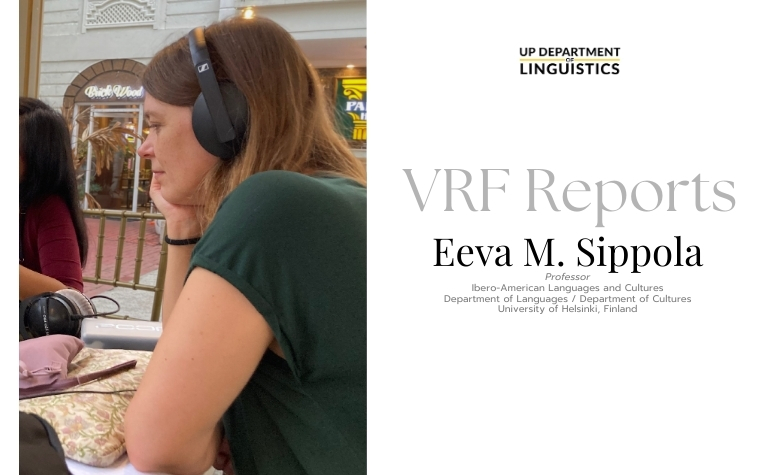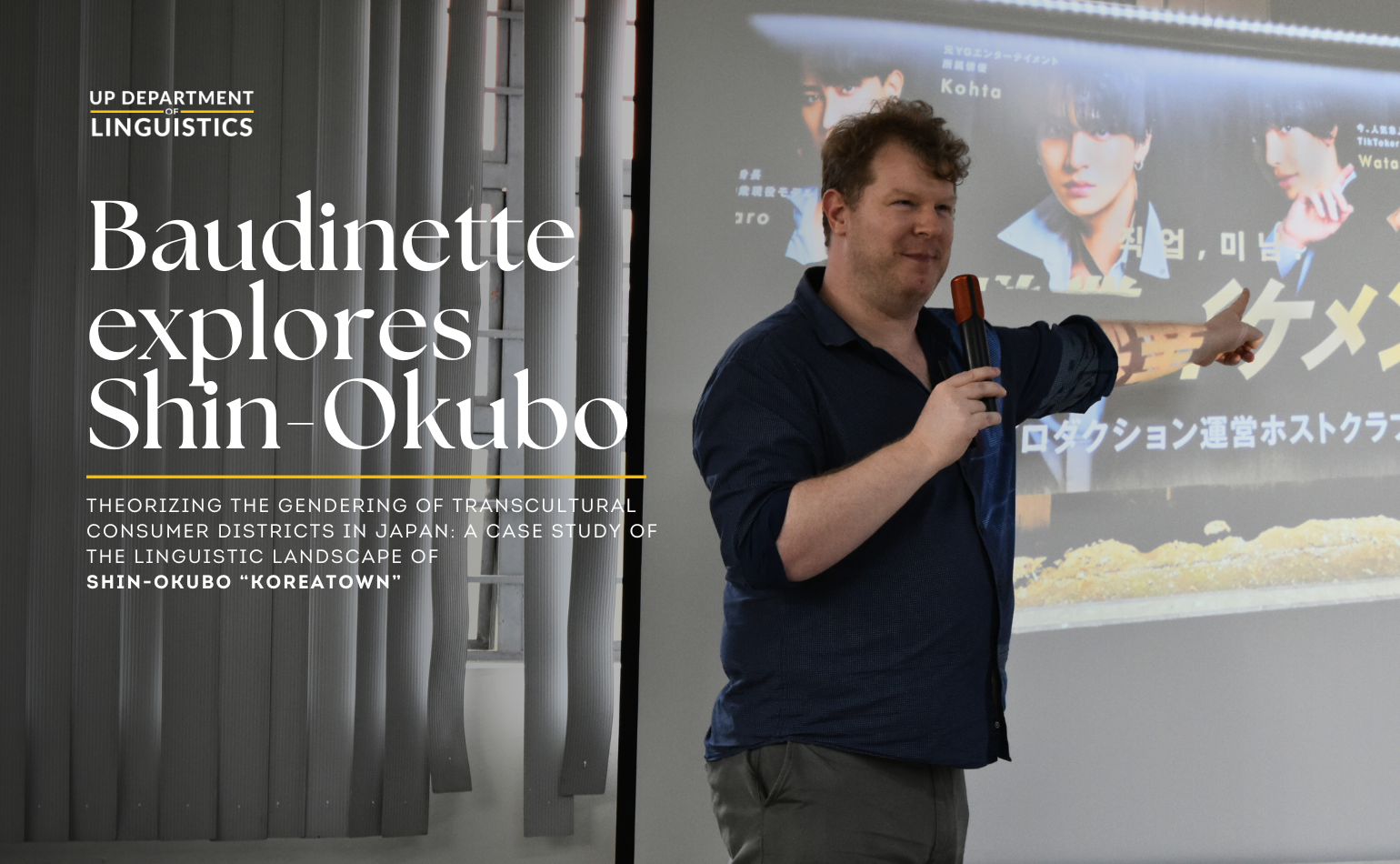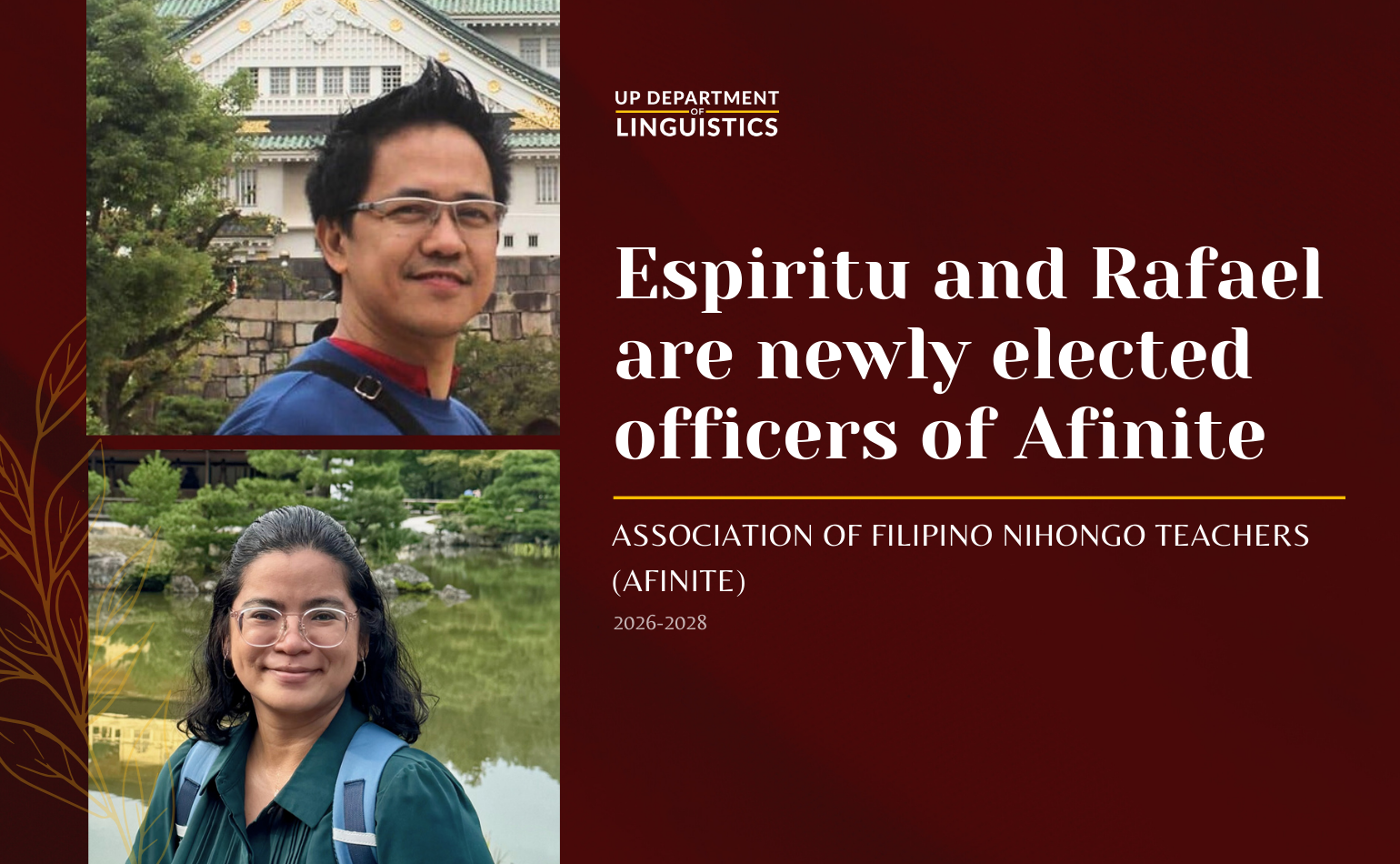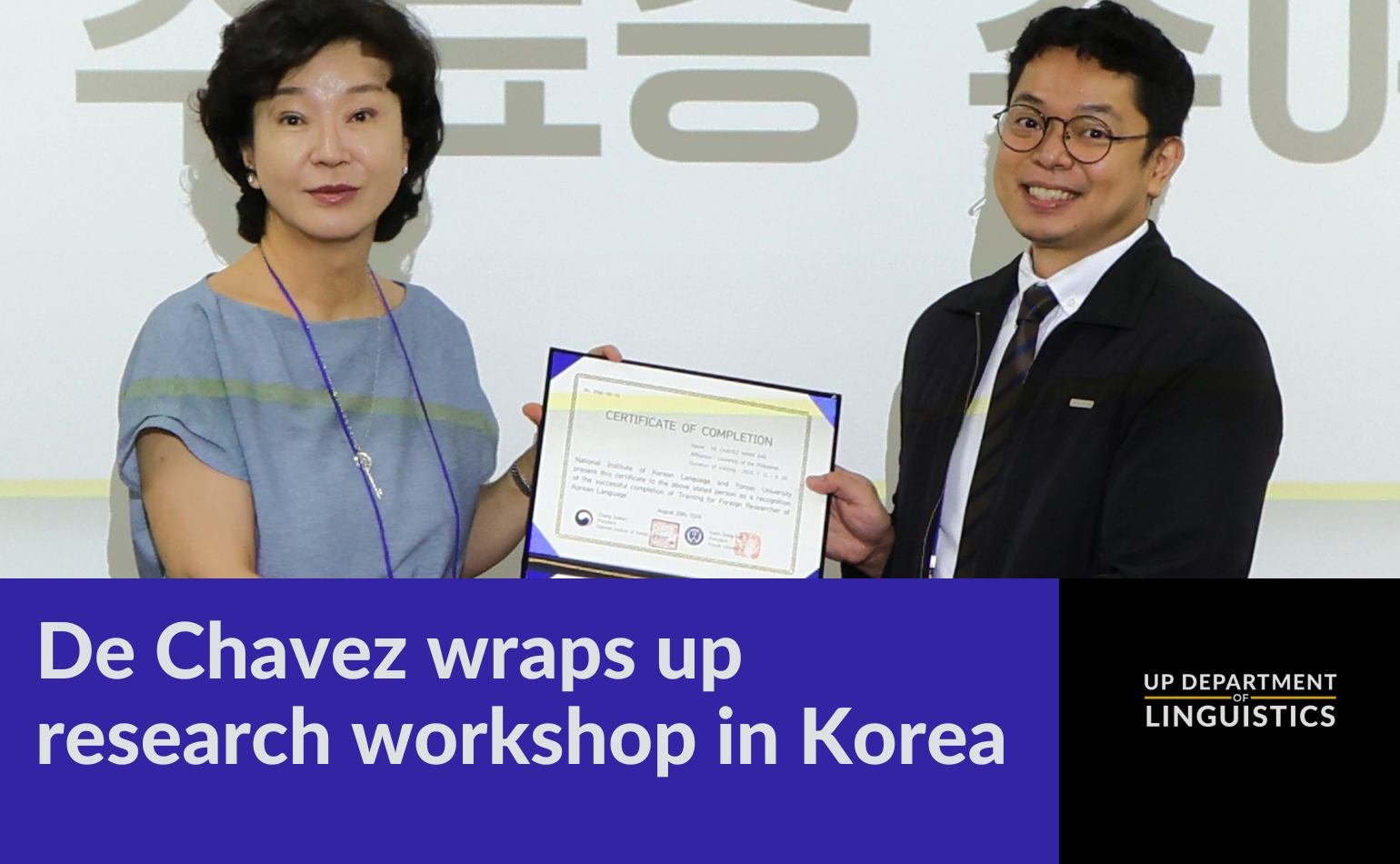
Senior Lecturer Mark Rae De Chavez participated in the Research Workshop for Overseas KFL Educators (국외 한국어 연구자 배움이음터) organized by the National Institute of Korean Language (국립국어원), which ran from 01 to 20 August 2024. Read on to find out some details of the program, his personal experiences, and how these can be applied to Korean classes!
How was your experience in participating in the workshop?
Before participating in the workshop, I was very nervous because, firstly, the qualification for participants was quite high and I have never done academic writing in Korean. The interview was also quite stressful. I really wanted to participate in the workshop when Prof. Bae told me about it because it would be an opportunity to expand my Korean language skills and there was a project related to our Korean classes that got postponed or cancelled and I didn’t want our preparation for that to go to waste.
The workshop began with online courses through the Center for Teaching and Learning Korean (한국어교수학습샘터) website of the National Institute of Korean Language (국립국어원). It was a good opportunity to practice my comprehension skills in Korean before participating in the on-site workshop in Korea.
The main objective of the workshop was to produce research related to the Korean language and education so before we departed for Korea, we were able to meet our research adviser to discuss its direction. We spent the first half of the training in the Yonsei University International Campus in Songdo, Incheon, away from the distractions/attractions of Seoul and we focused on attending lectures on research methodologies while continuing our research. The environment was very good but we weren’t able to utilize much of the facilities like the library because it was during the school break and we attended classes in the morning.
We then transferred to the main campus of Yonsei University in Sinchon, Seoul where we continued with special lectures on Korean culture and language teaching. We also had multiple interactions with the administration of the National Institute of Korean language and we learned more about their ongoing projects and how open they are to accepting proposals for future collaborations with our own affiliated institution.
Some of the standout activities for me were the workshop on research writing which showed me how different research communities and languages may have vastly different preferences when it comes to writing research. The special lecture on Korea’s “puri (풀이) culture was also very interesting which discussed the interrelationship between everyday expressions and cultural practices. And finally, even though I did not technically sign up for the Korean language education workshop, I participated in the teaching demonstration (which I have done in previous workshops) which gave me confidence about the Korean language program in the University of the Philippines (UP). Even though it’s small, the education it offers is at par with other institutions abroad and I am hoping it grows even further in the future.
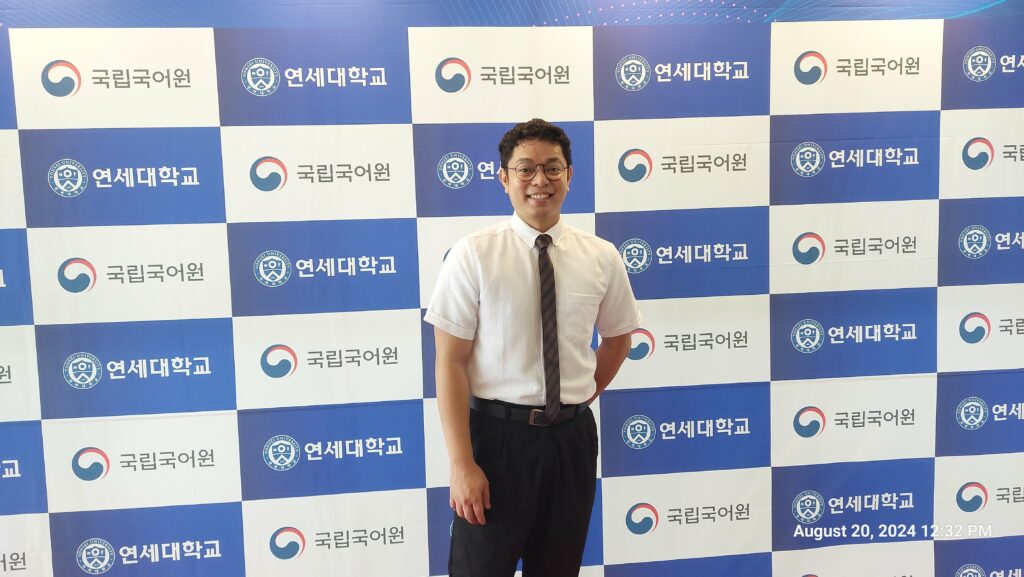
Regarding the research project, with the short length of time and the language barrier, I am still not fully satisfied with my work. In my project, I studied the current Korean language curriculum of the Department of Linguistics in the UP based on the recently published Standard Curriculum for Korean Language. Prior to the workshop I was part of a project for reviewing the curriculum which is why I chose the topic. After doing the research, I found that for Korean, even though it is currently being implemented at a relatively high standard, there is a problem with communicating its structure and potential to its stakeholders (other programs, students, the public, other institutions, etc.). With the review of other Korean language programs, it also made me realize the unique potential of the program in the Department with its focus on academic research and comparative linguistics. If I were to choose another topic, I would have definitely chosen pragmatics in conversational Korean.
Was there anything new or challenging you learned from the workshop?
During the application process, I was eager to learn about the current trends in topics and methods in Korean language and educational research and I was hoping to learn about stylistics in Korean academic writing.
During the program itself, I learned more about the available data for research that was produced by the National Institute of Korean Language formed through their projects which includes the Korean language error corpus which can be used for free even abroad. The workshop also highlighted the many uses of AI not only in teaching but also in research. In general, I felt the time to discuss the topics was too short but it gave some leads on where I can learn more about them in the future.
With the range of topics discussed in the workshop, I also got a sense of the current trends in Korean research which includes corpus analysis, error analysis, translation studies, and materials development that utilize AI. The winning research was about error analysis among Indonesian learners utilizing the corpus from the National Institute of Korean Language and in the future, I would also like our students and local researchers to explore these topics focusing of course on Filipino learners.
You received the Reels Award. How was interacting with other international participants?
Before departing for Korea, it was announced that there was going to be an event for making posts on Instagram while tagging the program’s instagram account (baeumieum_2024). I have never really considered making reels that much and was just planning to post pictures and stories. But because I often feel like pictures can’t capture my essence (ESSENCE?!) I’ve been taking short clips instead. The other participants liked the reels (I think). I really tried to show their personalities with the clips I chose. To be honest, I was quite shy around others and I feel showing the others how I saw them through the reels I made became a sort of introduction to me as well. Everyone was so kind.
In hindsight, the reels also became therapeutic and gave me a chance to reflect on the day’s event. It honestly just took me around 15 minutes to make one reel and I would have just slept early if I hadn’t made them. 10/10 would make more reels for future events that I’ll be part of (provided I’m not busy organizing).
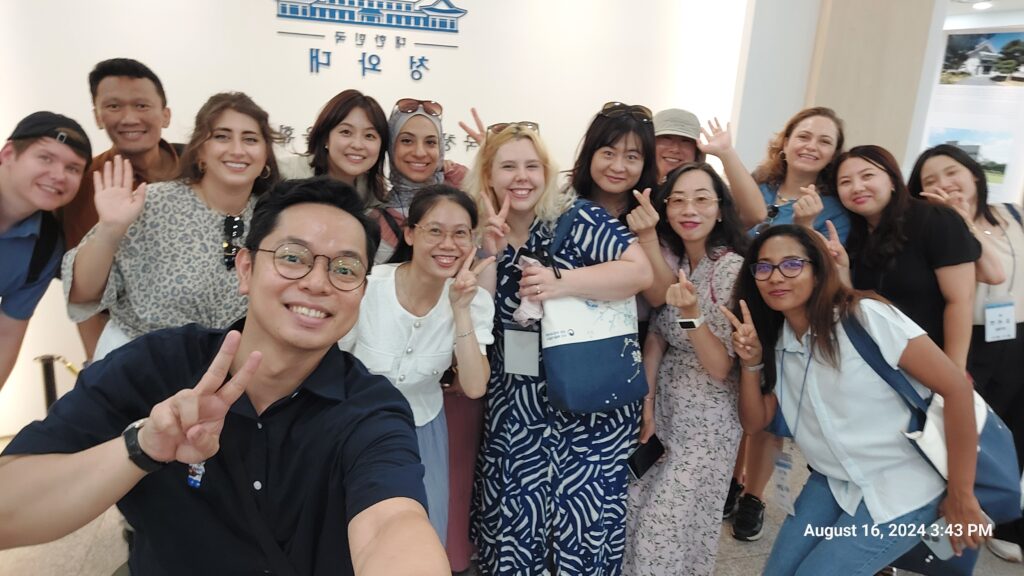
What are your plans for this school year?
For the rest of the year, I plan to just focus on my PhD courses and the research I am currently part of (including the project from this workshop). I was also recently invited by the UP Korea Research Center to participate in one of its projects, this time about the local Korean language education among heritage learners which we will finish by April next year.
Even before the workshop, I have felt that there’s quite a significant gap in our knowledge about Korean language use and education in the Philippines. In the past, I would have gate-kept my ideas about what topics should be on the top of the list but these days, I feel like the faster we can accomplish these research goals, the better it will be for everyone. If anyone is interested, they can always reach out and discuss. I am happy to help as much as I can.
After my current projects, I would like to focus on studying the other industries and sectors that have some Korean language needs particularly in the business and tourism sectors. I hope that I can find institutions that will be willing to participate in this project.
Lastly, thank you very much to the organizers of the event, Prof. Kim Gang-hui of the Yonsei University Global Leaders College and the National Institute of Korean Language, and the organizers of the workshop.
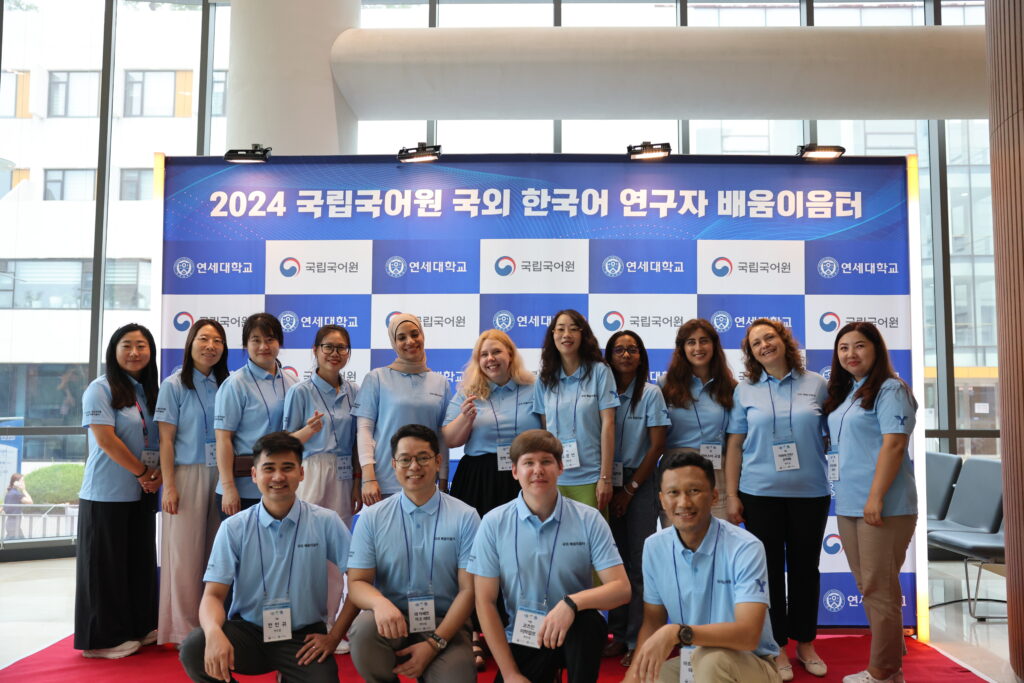
Published by UP Department of Linguistics

